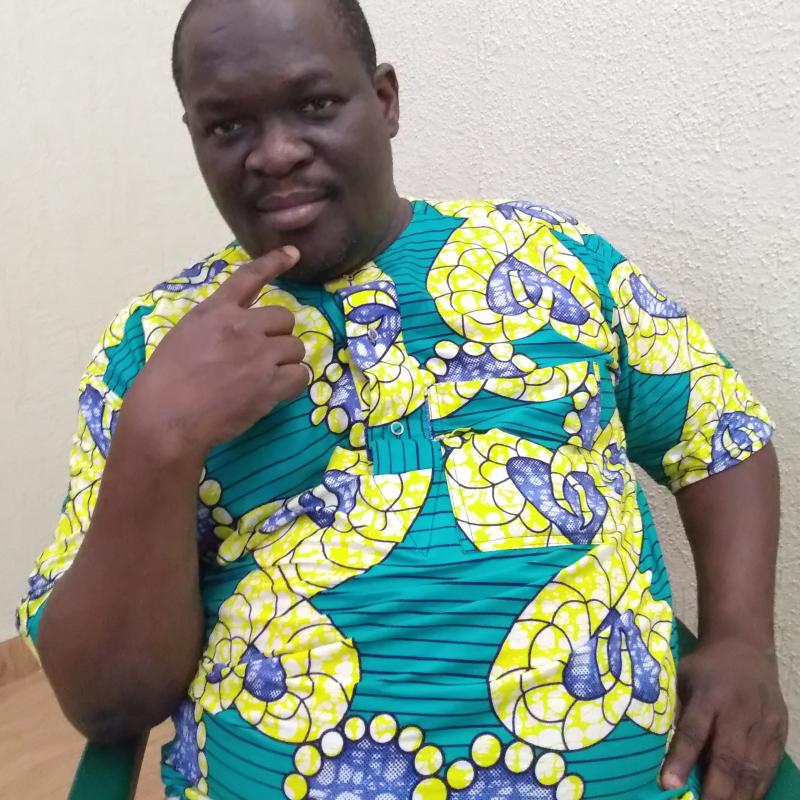I’m Emile N. HOUNGBO (PhD), a Benin citizen, Agricultural Economist Engineer (1996), with a PhD of the University of Abomey-Calavi (Benin) in socio-economics, environment and sustainable development (2008). I’m an Associate Professor at the National University of Agriculture in Benin, where I’m charged of the courses of Rural Economics, Methodology of Scientific Research, Macroeconomics and Project Management. My main research areas are sustainable agriculture, rural socioeconomics, food security, natural resources management, poverty analysis, and climate change. I’m an expert in strategic planning, the development and monitoring-evaluation of agricultural projects and poverty analysis. I has been charged of the monitoring and evaluation of several projects, such as the Fruit Flies West African Project (FF Project, 2014-2016) and the Blast Project (Pyriculariose Project, 2012-2016) both funded by the West and Central Council for Agricultural research and Development (WECARD) and the Project of Local Interventions for Food Security (PILSA, 1997, 2018) funded by the Government of Benin Republic.
My contributions
How to define and identify lessons learned?
DiscussionNeutrality-impartiality-independence. At which stage of the evaluation is each concept important?
DiscussionHow can evaluation help improve data quality and policies on food security during Covid-19 pandemic?
DiscussionRecurring errors in public policies and major projects: contributions and solutions from evaluation
DiscussionFor this purpose, I analysed the process of primary data collection and the food security indicators produced in my country, Benin. As we all know, the quality of statistics depends on the accuracy of primary data, as primary data ultimately condition all subsequent analyses and policies. My research clearly showed some weaknesses in the official statistics. Based on a literature review of the periodic statistics published by the INSAE, the public structure in charge of national statistics in Benin, and on interviews with some data collection agents used for surveys carried out from 2011 to 2018, I found two main
Is this really an output? Addressing terminology differences between evaluators and project managers
DiscussionThe issues facing global agriculture
DiscussionDevelopmental evaluation
DiscussionGender and evaluation of food security
Discussion

Emile Nounagnon HOUNGBO
Agricultural Economist, Associate Professor, Director of the School of Agribusiness and Agricultural Policy National University of AgricultureHello everyone,
Evaluating development projects/programmes is a sensitive activity. There is often a lot at stake. Often, commissioners are not ready to assume the results of evaluations. This reality means that only certain actors are committed to the accuracy of the evaluation results, while others see them as an exposure or sanction of their management inefficiency. When we are lucky enough that a part of the actors responsible for the implementation of the project/programme are willing to have the results communicated, we are in a happy situation. In these cases, the technical analyses and recommendations of the evaluator, previously given and clarified to a few key actors, must be precise and clear in order to allow relevant decisions to be taken. It must be admitted that evaluation plays an important role in improving the quality of project/programme implementation in order to increase its contribution to development.
To my knowledge, project implementers have often wanted the evaluator to be actively involved in communicating the results, in order to give them the highest possible level of credibility. Stakeholders, including project managers, have more trust in the evaluator's technical findings and statements.
To improve the quality of communication, it would be desirable for the evaluator to be responsible for post-evaluation work, in which the results are put into a communicable form for decision-makers, partners and beneficiaries. For greater certainty, the cost of this communication could be included in the evaluator's remuneration and specified in the terms of reference of the call for applications which recruited him/her. This would ensure that the results are reported systematically and in good form. But the commissioners and those responsible for the implementation of the project must be in agreement. This is the real challenge.
Thank you.
Dr Emile N. HOUNGBO
[Original contribution in French]